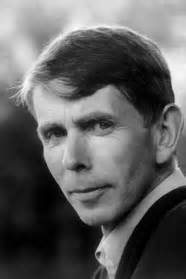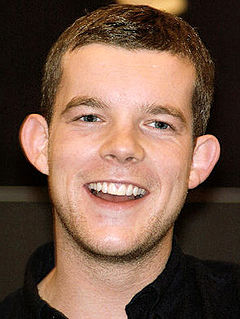A Quote by Ellen Glasgow
I have written chiefly because, though I have often dreaded the necessity, I have found it more painful, in the end, not to write.
Related Quotes
A public library is the most democratic thing in the world. What can be found there has undone dictators and tyrants: demagogues can persecute writers and tell them what to write as much as they like, but they cannot vanish what has been written in the past, though they try often enough...People who love literature have at least part of their minds immune from indoctrination. If you read, you can learn to think for yourself.
'Ghost City' was actually one of the few instances of non-fiction that I had written, and I felt that I probably said what I wanted. I think it must be different for every author; I haven't done very much of it, and perhaps, in a way, I found it rather painful, which is why I don't really do it very often.
I feel as though I never had choice not to be a writer. I feel in my heart of hearts that writing chose me and this is what I must do. I have no choice but to write, and to write, and to write, because my very life depends on it. And to assume that, of course, everyone in the entire universe wants to read what I've written.
Well, I hate it when authors come into a school and they say to kids, 'Write from your heart, only write what you know, and write from your heart.' I hate that because it's useless. I've written over 300 books - not one was written from my heart. Not one. They were all written for an audience, they were all written to entertain a certain audience.
Finally I do like best of all stories whose necessity is in the implied recognition that someplace out there there exists an urgency-a chaos-, an insanity, a misrule of some dire sort which can end life as we know it but for the fact that this very story is written, this order found, this style determined, the worst averted, and we are beneficiaries of that order by being readers
It can be a necessary conceptual truth that pains are painful without this ruling out the physicalist thesis that immaterial minds are impossible or the thesis that conscious states supervene on physical states. The necessity involved in these claims is nomological necessity, not metaphysical necessity (assuming that these are different).
When I left 'Being Human,' that was painful because the show was going on without me. But with 'Him & Her,' we finished on such a high together that if it is the end, it couldn't have stopped at a better time. But I hope with 'Him & Her' that we'll get another crack of the whip: that the writer might change his mind and write some more.
With films, I just scribble a couple of notes for a scene. You don't have to do any writing at all, you just have your notes for the scene, which are written with the actors and the camera in mind. The actual script is a necessity for casting and budgeting, but the end product often doesn't bear much resemblance to the script--at least in my case.







































